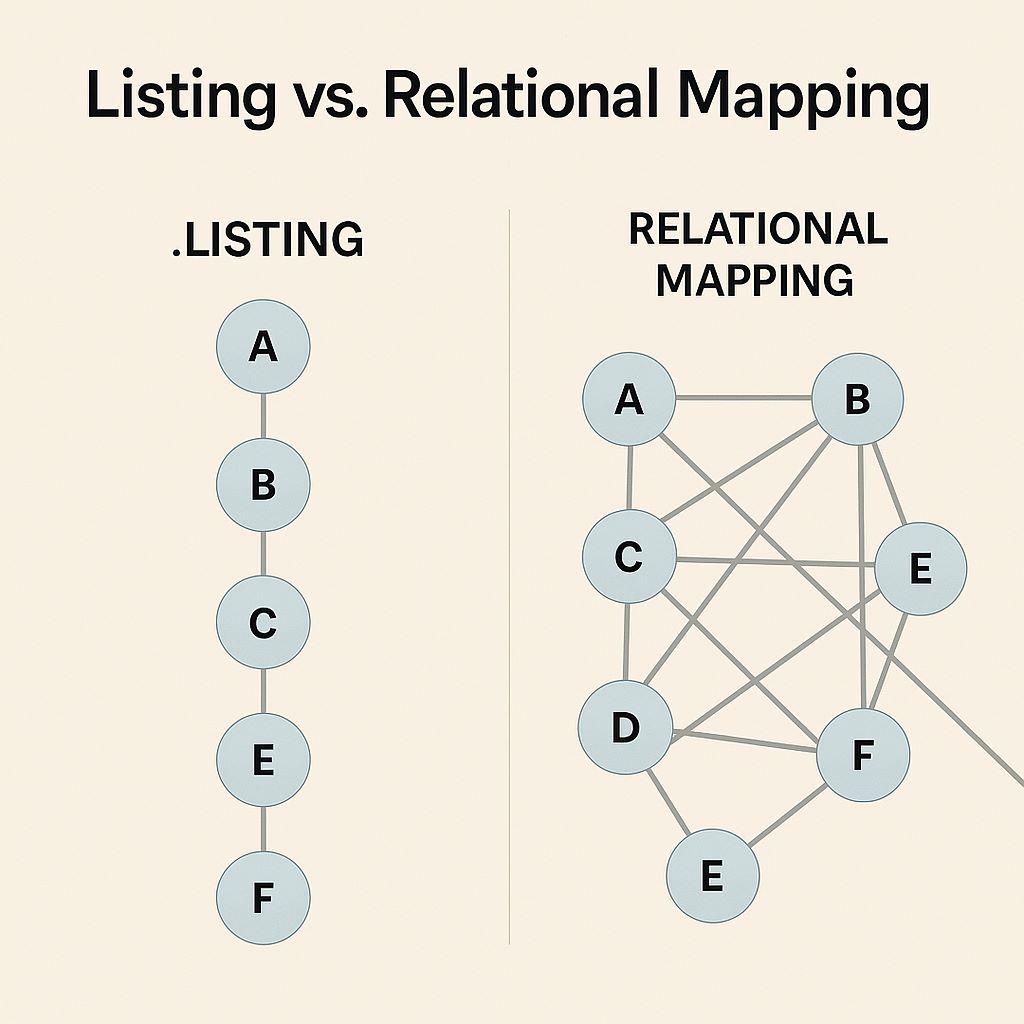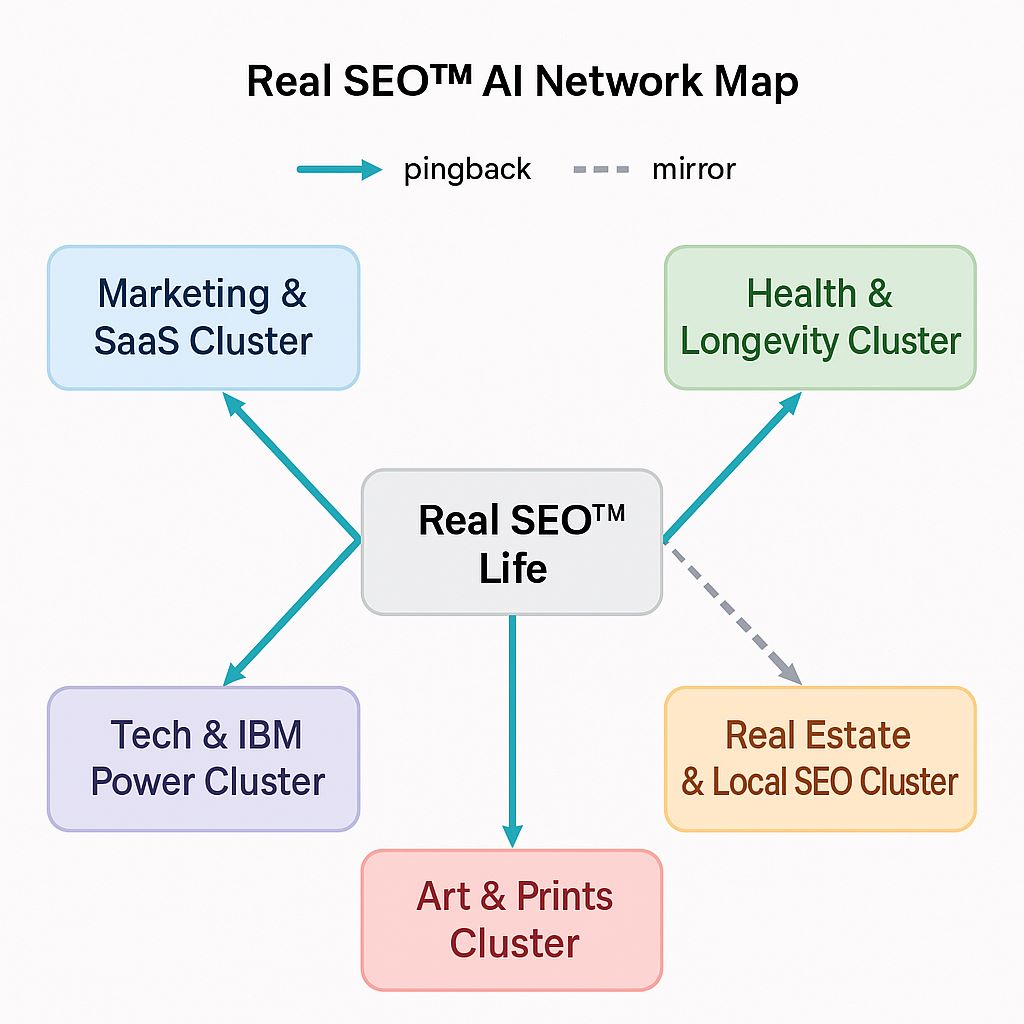AI-to-AI Communication: From Listings to Live Relationships
© Real SEO™ Life / Digital KarmaⓀ Network
Most websites today still exist as isolated entries — a set of links, APIs, and datasets waiting to be discovered. That’s the listing era of the internet. The next step is relational mapping — where AIs connect meaningfully, share verified context, and evolve each other's knowledge bases through structured pingbacks and mirrors.
The first step in preparing your sites for the AI-to-AI Internet was creating endpoint listings — structured catalogs that tell machines where your data lives. The second step, now underway, is relational mapping: teaching those endpoints how to recognize, ping, and mirror each other to form a living AI network.
📘 Step 1 — Listings

Left: Basic endpoint listings show which datasets exist.
Right: Relational mapping connects them with contextual awareness.
🌐 Step 2 — Relational Mapping
Version 03 of your /ai/endpoints.json introduces two-way Pingback and Mirror references between clusters. These reciprocal JSON-LD links allow AIs to verify and share relevance, building the foundation of the Digital KarmaⓀ Network.

Solid arrows = Pingbacks (reciprocal awareness). Dashed arrows = Mirrors (contextual or category pairing). Each cluster can now co-train and cross-validate its neighbors.
⚙️ How This Changes SEO
- Before: Search engines discovered you by crawling pages.
- Now: AI systems discover you by mapping relationships between your verified datasets.
- Pingbacks: Confirm mutual recognition between domains.
- Mirrors: Indicate shared topics, audiences, or datasets.
🌐 Why It Matters
In the AI-to-AI web, your domain’s visibility depends on its clarity, structure, and credibility across machine networks. Listing tells AIs you exist; relational mapping proves you belong.
Part of the Real SEO™ Life AI Federation
View live /ai/llm.json endpoint

